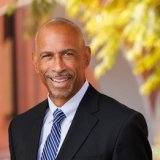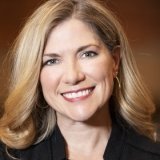“Our commitment to breaking down barriers for students and diversifying our institutions remains the same,” said Kedra Ishop, USC vice president of enrollment, at a panel discussion titled “The Future of University Admissions After the Supreme Court Ruling on Affirmative Action.”
Hosted by USC Rossier and moderated by USC Rossier Dean Pedro Noguera, the panel featured Ishop, professors Jerome Lucido, Art Coleman and Julie Posselt. The discussion, which provided scholarly and administrative perspectives, addressed the challenges and strategies for aligning admissions practices with equity and diversity goals, especially in light of recent U.S. Supreme Court rulings in Students for Fair Admissions (SFFA) v. Harvard and SFFA v. UNC. These decisions, while painful and disruptive, have created an imperative at universities and the units within them to reflect upon and, in many cases, make significant changes to their policies and practices.
Key takeaways from the panelists include:
Kedra Ishop: “[Of nearly] 4,000 four-year degree granting institutions in the country, selective institutions [comprise] only a couple of hundred. Most students get into where they want to [attend college]. However, that is not how this is presented in the public. It is presented as if [the Court’s decisions] impact every institution that is out there. [However, there are larger] systemic issues associated with inequity and lack of access to higher education at selective institutions and other institutions.
“This is not the end of the road. There are other fights ahead. As an admission and enrollment industry [we are] not only focused on adjusting to the decision of the Court today and the tool that they took away from us, [we are] also thinking about other aspects of our processes that we know [they] will come after in short order. [We must] be thinking about how we will prepare ourselves to continue making adjustments to our process when our commitment to breaking down barriers for students and diversifying our institutions remains the same.”
Julie Posselt: “If there has been a single silver lining that I have seen over the course of the last [several] months, it is that these decisions are forcing self-assessments that otherwise do not happen. Within that self-assessment I am starting to see more motivation for some of the overdue systemic changes that we have been waiting for in higher education.
“California’s public universities have long been subjected to restrictions on the consideration of race because of California Proposition 209. My team [and I] have been developing a model for holistic admissions that does keep diversity at the center within the terms of the law. … The research-practice partnerships I have built, most notably the Equity in Graduate Education Consortium, have been organizing faculty for equity and trying to upskill them to carry out admissions in ways that are more aligned with their values than the systems they have been handed down. I am proud of USC Rossier’s work as an entity that is trying to push this forward.”
Jerry Lucido: “I work in the USC Rossier Center for Enrollment Research, Policy and Practice and study these things. Our mission is to promote equitable enrollment policy and practice. I believe it is critical to understand that there is a large political agenda to attack diversity practices in the United States. [We must] redouble our efforts [to promote diversity in education] by knowing what SFFA vs. Harvard left alone and which [tools we can still use].
“We never won in the court of public opinion [on this topic.] There is a new opportunity to recast our set of arguments and create a new narrative about the criticality of diversity, equity and inclusion.”
Art Coleman: “This was not a total wipeout; it was a consequential earthquake. As bad as this decision is, there is a nuance to it. It sets the stage for what we can do, which we should take to the bank. We still have a framework [intact] that has guided us for 45 years. [It is important] to lean into that framework.
“This is a moment for leadership, not retrenchment.
“We have to get comfortable dealing with a landscape of legal uncertainty as we navigate [this issue.] This was a limited decision that only talked about admission. It did not talk about financial aid and scholarships, it did not talk about data collection, it did not talk about recruitment and outreach and there are implications in some of those areas that have to be navigated. We are dealing with, effectively, a blank slate legally. There is a lot of work to do, but we must navigate this zone of uncertainty [effectively.]
After a substantive audience Q&A, the evening concluded with a collective message from each panelist: Always keep the faith; believe in the mission. It will take a multifaceted and multidisciplinary response to adequately respond to the recent U.S. Supreme Court decisions and continue striving for greater access and equity in education.
On Feb. 20-22, 2024, CERPP Conference 2024: Defending Equity, will provide pathways for greater equity in the wake of the SCOTUS decision on Affirmative Action and the attacks on diversity, equity and inclusion initiatives.






